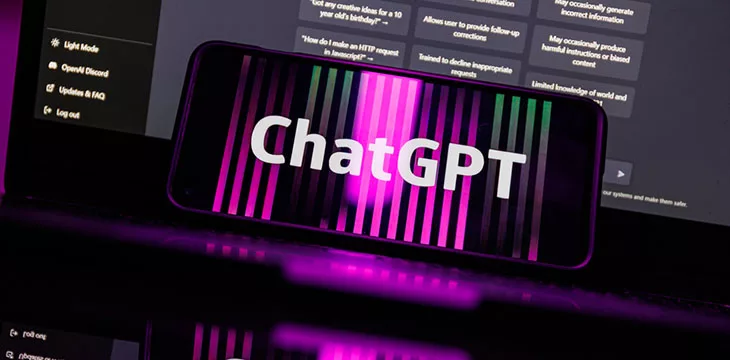|
Getting your Trinity Audio player ready...
|
Chinese authorities have confirmed the arrest of a suspect for using the artificial intelligence (AI) platform ChatGPT to generate fake news on several social media platforms.
According to the South China Morning Post (SCMP), Chinese police in Gansu province arrested the suspect, who is only referred to as Hong, for using artificial intelligence technology to concoct “false and untrue information.” Law enforcement picked up Hong’s trail after 20 accounts shared a false story about a train crash on the Chinese social media platform Baidu.
This is the first time Chinese authorities have arrested an individual for using ChatGPT in the country as it inches forward with regulations to halt its usage. Hong faces up to ten years in prison for breaching Chinese social media rules of publishing fake news reports online.
However, a spirited legal defense could see Hong bag only five years if it proves in court that the AI-generated story did not cause grievous harm to the public. Since its publication, the story has received over 15,000 views leading to an investigation by law enforcement agents in the region that culminated in an apartment raid.
Hong confessed to operating multiple accounts to quickly disseminate the stories via a share function. Hong also revealed using previous trending Chinese stories as input for ChatGPT to create the fake report.
China has been cracking down on generative AI and deep fake technology, famously issuing a framework for their usage in January. Dubbed the Administrative Provisions on Deep Synthesis for Internet Information Service, the provision issued stiff penalties for unethical usage of the technology in China.
While China has continued to eye foreign AI platforms skeptically, it appears to have given its blessings to homegrown projects like Alibaba’s Tongyi Qianwen. However, it remains unclear if Alibaba’s generative AI project will have the creative functionalities of OpenAI’s ChatGPT.
Brewing storm triggered by AI
As AI continues its upward climb, corporations are scrambling to put guardrails in place to ensure their safe use, with the digital currency industry facing its fair share. Last week, Samsung banned staff from using generative AI platforms on work devices over a leaked source code amid other security concerns.
Spotify dug its heels by removing thousands of AI-generated songs on its streaming platforms following complaints from music companies like Universal Music Group (UMG). Music firms have warned that using AI to generate music could open a can of worms over intellectual property and copyrights.
“Artificial streaming is a longstanding, industry-wide issue that Spotify is working to stamp out across our service,” a Spotify spokesperson said.
In order for artificial intelligence (AI) to work right within the law and thrive in the face of growing challenges, it needs to integrate an enterprise blockchain system that ensures data input quality and ownership—allowing it to keep data safe while also guaranteeing the immutability of data. Check out CoinGeek’s coverage on this emerging tech to learn more why Enterprise blockchain will be the backbone of AI.
Watch: CoinGeek Roundtable talks AI, ChatGPT, and Blockchain

 03-04-2026
03-04-2026 




